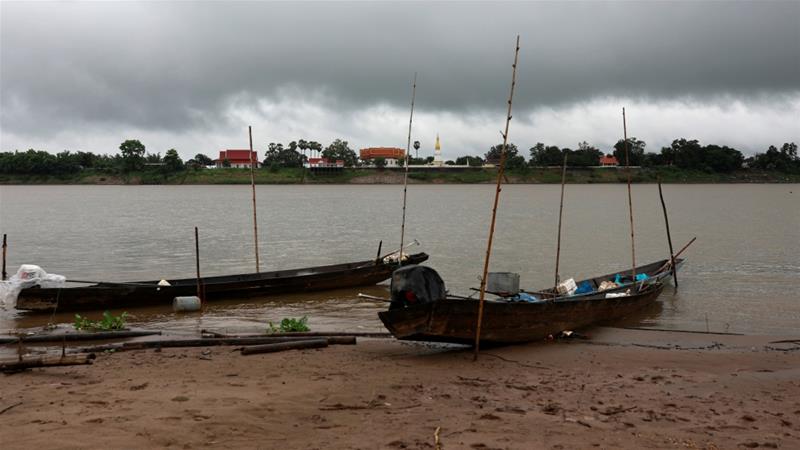Tucked away in the highlands of Hà Giang, the small…

Laos to go ahead with Luang Prabang dam project despite warnings
The government of Laos has officially informed the intergovernmental Mekong River Commission (MRC) of its plan to build a new dam in Luang Prabang, despite warnings about the project’s environmental effects.
“We confirm that the MRC Secretariat has received the notification from the Lao government on the Luang Prabang Hydropower Project in which the government has submitted to undergo the six-month Prior Consultation process,” the commission said in an email to Al Jazeera.
The notification was sent to MRC, an agency that works with regional governments to manage the development and resources of the Mekong River, on July 31.
The MRC said it has reviewed Laos’s submission, and notified the other member countries: Cambodia, Thailand and Vietnam.
The prior consultation process lasts a minimum of six months, but can be extended. During this period, MRC country members can review the project, assess transboundary issues and suggest changes.
However, the MRC is not a governing body, and ultimately, the final decision to build the dam rests with Laos alone.
The member countries will meet in early October and more information will be made public at the end of the month.
“Jeopardise the future”
The Luang Prabang dam is seen as part of Laos’s plan to become the “battery of Southeast Asia” aimed at lifting the country out of poverty.
As originally proposed, it would be a 1,410 megawatts project with a 90sq km (35sq miles) reservoir, located 30km (18.6 miles) from Luang Prabang town.
A Vietnamese company, VP Power, is slated to hold the largest share.
According to International Rivers (IR), an environmental and human rights NGO, Laos has plans for nine dams along the Mekong mainstream, while Cambodia has proposed two more.
Two – Xayaburi and Don Sahong – are already under construction.
“If the remaining … proposed dams are built, they seriously jeopardise the future of the Mekong as a life-sustaining ecosystem,” IR says in a statement on its website.
This year, the Mekong River experienced historically low water levels, which experts attributed to a combination of global climate change and the effect of dams.
The dams may have disastrous environmental consequences – especially in Cambodia which is home to Tonle Sap lake, a major freshwater fishery fed by the Mekong that provides the country with 70 percent of its total protein intake.
An official from Cambodia’s Fisheries Administration declined to comment, while officials from the Ministry of Environment and the Cambodia National Mekong Committee could not be reached.
Environmental concerns
Maureen Harris, Southeast Asia programme director for IR, said she was “disappointed” by Laos’s decision, and criticised the country for resisting development plans that take a more regional approach.
“The scientific evidence on the cumulative impacts of these projects is clear. Major impacts include destruction of fisheries, loss of sediment and alterations in flow patterns – jeopardising the food security and livelihoods of river basin communities,” she said via an email.
Harris also questioned the effectiveness of the prior consultation process in actually addressing issues.
“The ongoing failure to respond to public concerns prompted a regional civil society boycott of the last Prior Consultation for the Pak Lay dam,” she said.
A development expert who attended a meeting to discuss transboundary issues of the Pak Lay dam in January said the meeting was held in a five-star resort in Laos with “no expenses spared”.
He highlighted the futility of the event, claiming that Laos did not take seriously suggestions from other stakeholders.
“Countries were given a platform to voice their concerns on the proposed dam, but it’s a largely ineffective set-up,” he said, adding that the Lao delegation seemed to defer to the dam’s developers.
According to Radio Free Asia, about 4,600 people are expected to be displaced by the dam.
The MRC said that “relocation and compensation issues are the responsibility” of Laos.
“Resettlement programmes in Laos have frequently involved inadequate compensation for lost resources and income, poor-quality land and loss of livelihood,” Harris said.
Trinh Le Nguyen, head of Vietnam’s People and Nature Reconciliation (PanNature), said at this point he expects all proposed dams to be built, regardless of their environmental effect.
“It’s like domino effect now,” he said, noting that more than enough evidence of environmental damage has been presented.
“I am afraid another consultation is just a waste of time for everyone, considering lessons from previous four,” Nguyen said.



